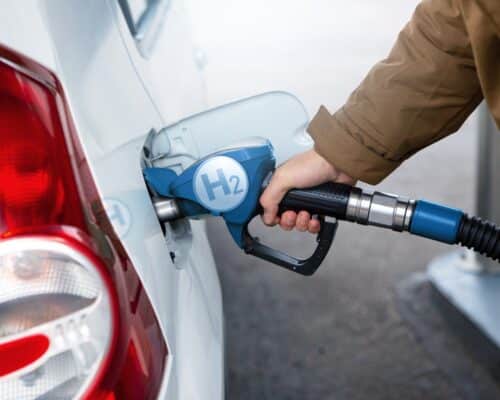Fossil Fuel
Ammonia Fuel: Powering Global Decarbonisation Efforts
Ammonia, generally used as a major component of fertiliser, is now being seen as a low-carbon fuel source. Yet, before this becomes viable green ammonia production technology must improve.
Oil Market Forecast 2023: Oil To Peak and Renewables To Accelerate
While the oil market for combustion purposes is likely to peak by 2028, according to the IEA, the Asia-Pacific region will continue to push global oil demand. But, with oil demand declining, will developing Asia continue to lock itself into a carbon-intensive future?
The Future Of Hydrogen: Powering The World
Leading international organisations consider green hydrogen a critical part of the world's future energy mix. Public and private sector support will reduce green hydrogen costs and drive technological advancements, boosting demand.
Hydrogen Cost: Can We Afford It?
Due to an immature market and technology, green hydrogen is not yet cost-competitive with fossil fuel-derived hydrogen. Government policy will be crucial in reducing these costs by facilitating private sector involvement and developing market demand.

Hydrogen Energy: False Hope or Solution?
Energy Tracker Asia speaks with chemical engineer, Paul Martin, at the hydrogen science coalition about the feasibility of hydrogen energy.
Solar Energy Investment is Expected to Overtake Oil Production For the First Time
While investments in fossil fuels are slowing down, the IEA's World Energy Investment Report 2023 says they remain way above the levels needed to reach net-zero by 2050.
The Uses of Hydrogen: A Catalyst for a Sustainable Future
Hydrogen is a common raw material used in many industries but is primarily produced with fossil fuels. If these industries switch to green hydrogen, it will significantly impact global greenhouse gas emissions.
Overcoming the Challenge of Hydrogen Storage
Hydrogen storage is one of the main building blocks for green hydrogen adoption. However, hydrogen has several characteristics that make it difficult to store effectively at scale. Ongoing research, development and investment are critical for overcoming these concerns.
MHI Greenwashing Tactics Demand Closer Scrutiny
Mitsubishi Heavy Industries (MHI) is pushing its net-zero emissions by 2040 pledge at full force. But, its strategy includes relying on gas-fired power projects, questionable carbon capture technology and profiting as a major carbon credit broker. These tactics demand closer media scrutiny and overall environmental monitoring.
Taiwan’s LNG Development Overpowers Its Renewables Ambitions
The Taiwanese government has earmarked some USD 32 billion for renewables, hydrogen and carbon capture and storage (CCS) investments to move the country’s energy development in the right direction. However, it also continues a major liquefied natural gas (LNG) build-out as part of its long-term energy mix strategy, putting the country in an energy supply and climate mitigation quandary.
Natural Gas Forecast 2023: Demand in Asia to Bounce Back
While natural gas prices are expected to remain low, they would still be above their historical averages. As a result, Asian countries' imports would still be costly, even in an ideal world without any market volatility.
Hydrogen Infrastructure: Development and Challenges
The lack of existing hydrogen infrastructure is a significant hurdle to the widespread adoption of green hydrogen. However, there is an incentive for the public and private sectors to develop the required infrastructure. Hydrogen can help the world reach decarbonisation goals, and the hydrogen market is expanding with lucrative opportunities.
Most Popular
Categories
-
10
-
34
-
126
-
4
-
17
-
46
-
52
-
11
-
10
-
15
-
24
-
6
-
1
-
5
-
6
-
283
-
200
-
17
-
24
-
1
-
1
-
23
-
41
-
44
-
88
-
18
-
86
-
41
-
17
-
11
-
43
-
54
-
86
-
299
-
22
-
44
-
36
-
11
-
42
-
36

